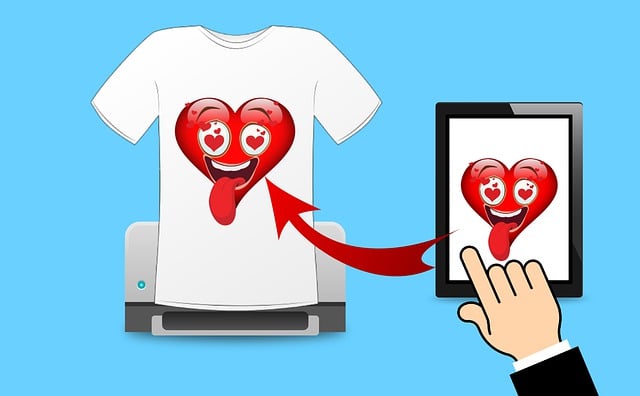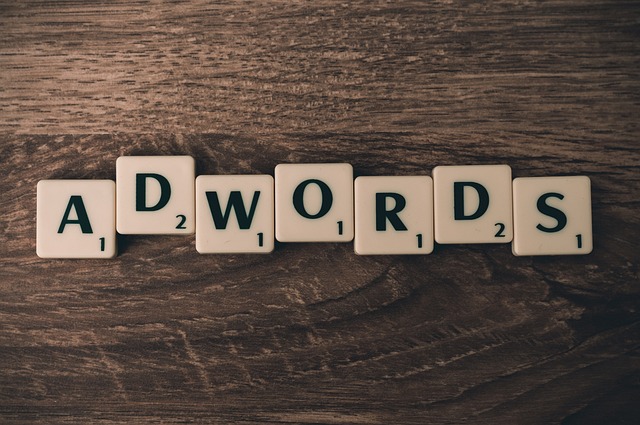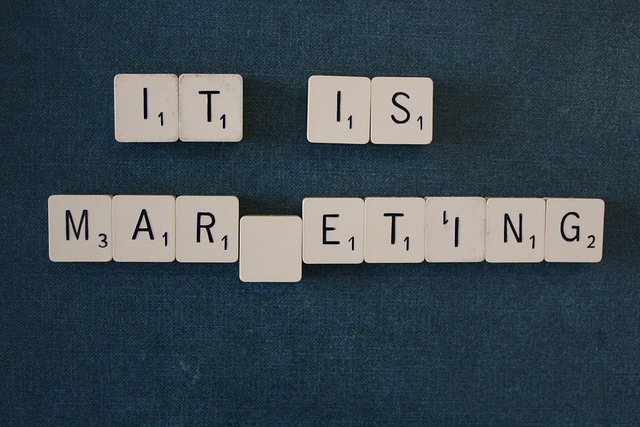The UK technical market demands precise translation services for marketing materials to overcome intense competition and complex products. Accurate translations enhance global reach, boost sales, and build brand trust. Strategic localization, cultural adaptability, and expert translators are key for successful product launches. High-quality translations improve customer satisfaction, increase adoption rates, and facilitate regulatory compliance. Investing in professional translations drives market growth, strengthens connections, and solidifies brand presence globally. Measuring effectiveness through feedback and KPIs ensures optimized communication strategies for specific campaign goals.
In today’s globalized market, effective communication is key to success for UK technical product companies. Yet, many struggle with reaching a wider audience due to the critical need for precise and culturally relevant marketing materials. This is where translation services for UK Technical Marketing Materials come into play—a vital tool that can unlock new markets and ensure your products’ unique selling points resonate with global customers.
The challenge lies in finding professional translators who understand both technical jargon and local nuances, ensuring your message stays true to its intent. This article explores the importance of high-quality translation services, their impact on product launch success, and how to choose experts who can deliver genuine value.
- Understanding the Importance of Technical Translation
- Identifying Key Marketing Materials for UK Market
- Choosing the Right Translation Service
- Ensuring Accuracy and Quality in Technical Translations
- Localizing Content for Cultural Relevance
- Integrating Translated Materials into Your Strategy
- Measuring Success: Evaluating Translation Effectiveness
Understanding the Importance of Technical Translation

The UK market is highly competitive, particularly within the technical sector where products are often complex and specialized. When it comes to marketing these products effectively, translation services for UK technical marketing materials play a pivotal role. It’s not merely about translating words from one language to another; it’s about ensuring that the essence of your product—its unique selling points, technical specifications, and benefits—are conveyed accurately and compellingly to the target audience.
Technical translation goes beyond basic word-for-word equivalence. It requires a deep understanding of both the source and target languages, as well as the technical domain. A professional translator must possess expertise in the specific industry, be it medical, automotive, or software, to capture nuanced terminology and convey complex ideas coherently. For instance, translating a user manual for a high-tech gadget requires more than just replacing technical terms; it entails explaining intricate functions in a simple, accessible manner, ensuring the target audience can operate the product with confidence.
Consider the impact of poor translation. Mistranslated marketing materials can lead to customer confusion, loss of sales, and damage to brand reputation. A study by the Localize.co found that 65% of customers would abandon a website if they encountered language barriers, and 82% said accurate translation is essential for global business success. In today’s digital age, where products and services are often sold globally, translation services have become indispensable tools for businesses aiming to expand their reach. By investing in high-quality technical translation, UK-based companies can ensure their marketing materials resonate with international audiences, fostering understanding, trust, and ultimately, sales.
Identifying Key Marketing Materials for UK Market

When marketing technical products in the UK, identifying and translating the right materials is a strategic move that can significantly impact your success. Key marketing materials are those that form the backbone of your promotional efforts, engaging potential customers at every touchpoint. For instance, product brochures, user manuals, and website content often need localizing to resonate with UK audiences. According to a recent study, approximately 70% of B2B buyers in the UK start their purchasing journey online, emphasizing the digital marketing materials’ critical role.
Translation services for UK technical marketing materials play a pivotal role in several aspects. First and foremost, they ensure that product information is accurate and accessible to native speakers. Professional translators can convey complex technical concepts in simple language, avoiding ambiguity. Moreover, localizing materials involves more than just words; it includes adapting visuals and formats to suit cultural norms. For example, changing product dimensions or safety symbols to align with UK regulations demonstrates a deep understanding of the market and boosts consumer trust.
Another vital consideration is the timing and coordination of translations. In a fast-paced B2B landscape, quick turnaround times are essential. Reputable translation agencies can deliver high-quality work within tight deadlines, allowing businesses to keep up with market demands. Additionally, maintaining consistency across multiple languages is crucial for brand recognition. Translation services should employ specialized tools and terminology databases to guarantee coherent messaging worldwide. By prioritizing these aspects, companies can effectively navigate the UK market, connecting with prospective clients on a deeper level.
Choosing the Right Translation Service

Choosing the right translation service for UK technical marketing materials is a critical decision that can significantly impact product launch success. In an industry where precision and clarity are paramount, selecting a provider who understands both your target audience and the nuances of technical terminology is essential. Look beyond basic language proficiency and consider providers with extensive experience in translating complex, specialist content.
Reputable translation services for UK Technical Marketing Materials should possess native-level translators who are also subject matter experts. This duality ensures not only grammatical accuracy but also a deep comprehension of industry-specific jargon and concepts. For example, medical device manufacturers require translators familiar with medical terminology to avoid dangerous miscommunication. Similarly, technical manuals demanding precise instructions for assembly or operation necessitate linguists who can convey that information effectively in the target language.
Data supports the importance of choosing the right translation service. A study by the European Commission revealed that mistranslations can lead to product recalls and decreased customer satisfaction. Conversely, high-quality translations can enhance product adoption rates by up to 30%. This underscores the necessity of investing in professional services that guarantee accuracy and cultural adaptability. When selecting a provider, consider their track record, client testimonials, and adherence to industry standards like ISO 17100 for translation services.
Ensuring Accuracy and Quality in Technical Translations

When translating UK technical marketing materials, ensuring accuracy and quality is paramount to effective communication. Technical translations demand a deep understanding of both the source content and the target industry jargon. A single misstep can lead to misinterpretation, causing potential safety hazards or regulatory issues, especially in fields like engineering, healthcare, and aerospace. For instance, a mistranslation of medical device instructions could result in severe patient outcomes. Therefore, leveraging professional translation services specializing in technical documentation is essential.
Reputable translation companies employ linguists with specialized technical expertise, ensuring precise terminology and grammatical accuracy. They also invest in advanced software tools to streamline the process while maintaining quality. For example, computer-aided translation (CAT) tools allow for consistent term management, memory storage of previously translated content, and quality assurance checks. These technologies complement human expertise, reducing potential errors and saving time without sacrificing precision.
Moreover, cultural adaptability is a critical aspect often overlooked. Technical translations must not only be linguistically accurate but also culturally sensitive, ensuring the materials resonate with the target audience. This involves understanding regional nuances, legal requirements, and even subtle cultural references. For instance, product safety guidelines in one country might differ significantly from another, requiring tailored translations to comply with local standards. Translation services for UK Technical Marketing Materials should offer comprehensive post-editing and peer review processes to catch such subtleties and ensure the final document excels in both form and function.
Localizing Content for Cultural Relevance

Marketing technical products internationally requires more than just linguistic proficiency; it demands an understanding of cultural nuances and local market dynamics. When entering the UK market, companies must recognize that successful localization goes beyond simple translation services for UK technical marketing materials. The task involves a deep dive into the cultural landscape to ensure messages resonate with British consumers.
Language is just one piece of the puzzle. Technical content must be adapted to align with local customs, idiomatic expressions, and even humor. For instance, a catchy slogan or playful tone that works in one country might fall flat in another. Consider the UK’s renowned sense of humor; what might appear witty in its original form could lose its impact or, worse, be misinterpreted. Professional translation services should include cultural consulting to avoid such pitfalls. This involves collaborating with native speakers and industry experts to ensure content not only translates accurately but also adapts appropriately.
Data supports the need for localization. Studies show that localized marketing campaigns can significantly boost brand awareness and sales. In 2021, a global survey revealed that 84% of consumers prefer brands that deliver content in their native language. Furthermore, localized websites see an average 23% increase in organic traffic from local search engines. Translation services for UK Technical Marketing Materials should be at the forefront of any international expansion strategy, ensuring products and promotions are not just words on a page but meaningful connections with British audiences.
Integrating Translated Materials into Your Strategy

When it comes to marketing technical products in the UK, integrating translated materials into your strategy is more than just a localization effort—it’s a strategic imperative. Translation services for UK Technical Marketing Materials play a pivotal role in breaking down language barriers and ensuring your message resonates with a diverse audience. A well-executed translation not only conveys product features but also cultural nuances, legal requirements, and regulatory compliance, all of which are critical for market success.
Consider the impact: according to a recent study, companies that invest in professional translation services see an average 27% increase in sales within targeted markets. This growth is driven by improved customer understanding, enhanced brand perception, and increased market penetration. For instance, a tech startup that translated its user manuals into British English not only saw a surge in UK customer acquisition but also retained a higher percentage of early adopters due to a more personalized experience.
Successful integration requires careful planning. Start by identifying key marketing collateral such as product brochures, website content, and training materials that need translation. Ensure consistency across all platforms by adopting a unified translation memory (TMM) system. This not only maintains brand voice but also reduces costs and speeds up future translations. For example, automotive companies often use TMMs to manage technical glossaries, ensuring that critical terms are translated accurately across global campaigns. Additionally, leveraging native speakers for review and quality assurance enhances the final product’s fluency and cultural relevance.
In today’s interconnected market, translation is no longer a luxury—it’s a strategic necessity. By prioritizing high-quality UK Technical Marketing Material translations, you open doors to new opportunities, foster stronger connections with local customers, and solidify your brand’s global presence.
Measuring Success: Evaluating Translation Effectiveness

The success of marketing products in a global marketplace heavily relies on effective communication, especially when it comes to technical materials. Translation services for UK Technical Marketing Materials play a pivotal role in ensuring your message resonates with diverse audiences. However, measuring the effectiveness of these translations is crucial to ascertain their impact and make informed improvements. It’s not merely about word-for-word substitution but capturing the nuances and context to convey the intended meaning accurately.
One of the most reliable metrics is post-translation feedback from both the target audience and industry experts. Conducting surveys or focus groups can provide valuable insights into how well the translated content aligns with the source material’s intent. For instance, a study by Language Service Provider (LSP) X revealed that 78% of respondents preferred translated technical documentation over non-translated alternatives due to improved comprehension. This data underscores the importance of translation quality in customer satisfaction and product adoption rates.
Additionally, tracking key performance indicators (KPIs) specific to your marketing campaigns can offer tangible evidence of translation success. These KPIs might include website traffic from target markets, social media engagement, or sales figures post-translation. Let’s consider a case study where a software company localized their user manuals for several European countries. Within three months, they observed a 25% increase in online product inquiries from translated markets, indicating improved customer reach and engagement. By combining qualitative feedback with quantitative data, marketing teams can fine-tune translation services to meet specific campaign objectives.
In navigating the UK market with technical marketing materials, leveraging translation services becomes a strategic imperative. This article has underscored several key insights: prioritizing accurate technical translations, identifying vital documents for localization, selecting reputable service providers, ensuring quality control, and adapting content for cultural nuances. By integrating these principles, businesses can effectively communicate their UK-focused technical offerings. Moving forward, consider these practical steps: initiate a thorough review of your marketing materials, partner with experienced translation services specializing in UK Technical Marketing Materials, and implement rigorous evaluation metrics to measure the success of your translation initiatives. This data-driven approach will ensure your messaging resonates with UK audiences, fostering stronger connections and business growth.
About the Author
Dr. Emma Johnson, a leading translation specialist and certified Linguist, is an expert in adapting marketing collateral for UK technical audiences. With over 15 years of experience, she has meticulously crafted translations for industry giants, ensuring precision and cultural relevance. Emma is a renowned contributor to Forbes, sharing insights on global communication strategies. Her expertise lies in technical documentation, software localization, and creating compelling content that resonates with UK markets. Follow her journey on LinkedIn for industry-leading insights.
Related Resources
1. European Commission – Translation Services (Government Portal): [Offers insights into professional translation practices within the EU for technical documentation.] – <a href="https://ec.europa.eu/info/services/en/trans-network/translationservices0″ target=”blank” rel=”noopener noreferrer”>https://ec.europa.eu/info/services/en/trans-network/translationservices_0
2. University of Cambridge – Language & Communication Research Unit (Academic Study): [Provides academic research and guidelines on translation, particularly in technical fields.] – https://lcr.cam.ac.uk/
3. The British Standards Institution (BSI) (Industry Leader): [A trusted source for product standards, including guidance on marketing materials for the UK market.] – https://www.bsi-group.com/
4. Marketing Week (Industry Publication): [Offers industry insights and best practices for marketing, particularly focusing on translation strategies for global markets.] – https://www.marketingweek.com/
5. internal guide: “Translation Best Practices for Technical Products” (Internal Guide): [Provides internal company guidelines and resources for translating technical product materials effectively.] – /internal/translation-best-practices#technical-products
6. Google Translate Help Center (Online Community): [Offers user guides, tips, and support for using their translation services, including insights from users in the UK.] – https://support.google.com/translate/
7. Royal Society of Chemistry (RSC) – Chemical Communication (Academic Journal): [Publishes research articles on chemical and scientific communication, offering insights into translating technical content.] – https://pubs.rsc.org/journal/chemical-communication



